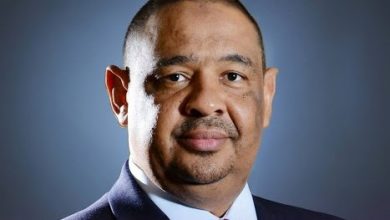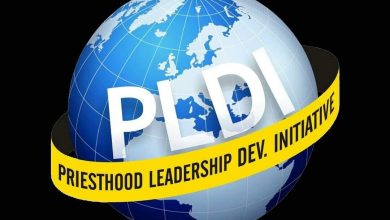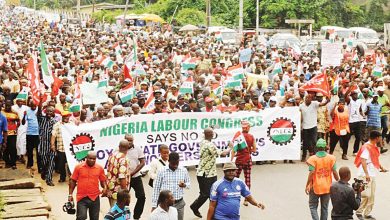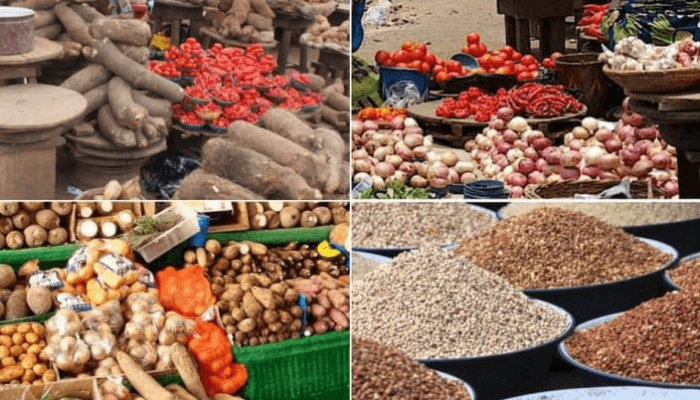
Nigerians Lament Soaring Cost of Living: A Struggle Against Rising Food Prices and Household Expenses
By Adejola Adeyemi Crown
In recent times, Nigerians find themselves caught in the grip of an alarming rise in the cost of living, with the surge in prices of essential goods and household commodities leaving many citizens grappling with financial strain.
The nation, renowned for its resilience, is now facing a multifaceted challenge as soaring inflation directly impacts the daily lives of its people.
One of the most glaring concerns is the escalating cost of food, a staple that forms the foundation of every household. Basic food items such as rice, beans, vegetables, and cooking oil have experienced significant price hikes, sending shockwaves through local markets and leaving consumers with depleted purchasing power. Families, already contending with various economic pressures, now find it increasingly challenging to put nutritious meals on their tables.

The ripple effect extends beyond food, encompassing a broad spectrum of household commodities. From toiletries to cleaning supplies, the rising prices are felt keenly by citizens across different socio-economic backgrounds.
This unprecedented surge in the cost of living has sparked a wave of lamentations among Nigerians who are left questioning the sustainability of their livelihoods.
The root causes of this economic distress are complex, involving a combination of factors such as global market dynamics, supply chain disruptions, and domestic economic challenges.
The currency exchange rate and COVID-19 pandemic have played a role in disrupting supply chains, exacerbating existing economic vulnerabilities and compounding the struggles faced by ordinary citizens.
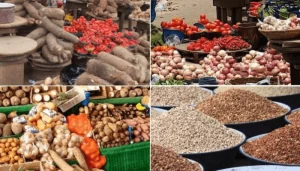
The Nigerian government has not been oblivious to these concerns and has implemented various measures to address the economic challenges.
However, the path to economic recovery is fraught with obstacles, and citizens are grappling with the immediate consequences of these economic fluctuations.
As Nigerians lament the high cost of living, there is a collective call for urgent and effective measures to stabilize the economy. This includes enhanced efforts to revitalize the agricultural sector, tackle inflation, and implement policies that mitigate the impact of global economic fluctuations on local markets.
While the nation faces these challenges, the resilience and spirit of the Nigerian people remain unwavering.
Communities are coming together to support one another, and individuals are seeking innovative ways to navigate these economic uncertainties.

The hope is that, through a concerted effort from both the government and citizens, Nigeria can overcome this period of economic hardship and emerge stronger on the other side. Nigerians Point to Government Policies as Economy Collapses
In the face of a collapsing economy, Nigerians are directing their frustration towards government policies, emphasizing the need for urgent attention from the administration led by President Bola Ahmed Tinubu. The economic downturn, marked by rising inflation, unemployment, and a general decline in living standards, has spurred citizens to voice their concerns and call for swift corrective measures.
Critics argue that certain government policies have contributed significantly to the current economic woes. From trade regulations to fiscal decisions, the impact on businesses and the overall economy has been substantial.
The business community contends with challenges ranging from stifling regulations to inconsistent policies, hindering growth and job creation.

One focal point of criticism is the management of key sectors, including agriculture and manufacturing. Many Nigerians believe that a comprehensive review and overhaul of existing policies are imperative to stimulate economic growth, create employment opportunities, and reduce dependence on imports.
As citizens express their grievances, there is a palpable sense of urgency for President Bola Ahmed Tinubu’s administration to address these concerns promptly.
The expectation is that the administration will engage in a dialogue with various stakeholders, including business leaders and economists, to formulate and implement effective policies that can reverse the current economic downturn.
The call for urgent attention extends beyond economic policies to encompass broader issues such as infrastructure development, education, and healthcare.
Many believe that a holistic approach is necessary to tackle the root causes of the economic challenges and set the country on a path to sustainable growth.

It is acknowledged that the economic recovery process is intricate and demands collaborative efforts from both the government and citizens. However, the belief persists that a proactive and transparent approach from the Bola Ahmed Tinubu-led administration can instill confidence in the populace and pave the way for a revitalized and resilient Nigerian economy.
In conclusion, as Nigerians navigate these trying times, they remain hopeful that their concerns will be heard and that the government will take decisive actions to address the issues at hand. The urgency of the situation underscores the need for a concerted effort to steer the nation towards economic stability and prosperity under the leadership of President Bola Ahmed Tinubu.
Adejola Adeyemi Crown writes from Abeokuta Ogun State, a community journalist and Publisher of Tropic Reporters adejola2010@gmail.com
FOOTNOTE: You want to share story with us? You want to advertise with us? You need publicity for product, or service, or event? Contact us on WhatsApp +2348073463653 or email penpushing@yahoo.com





